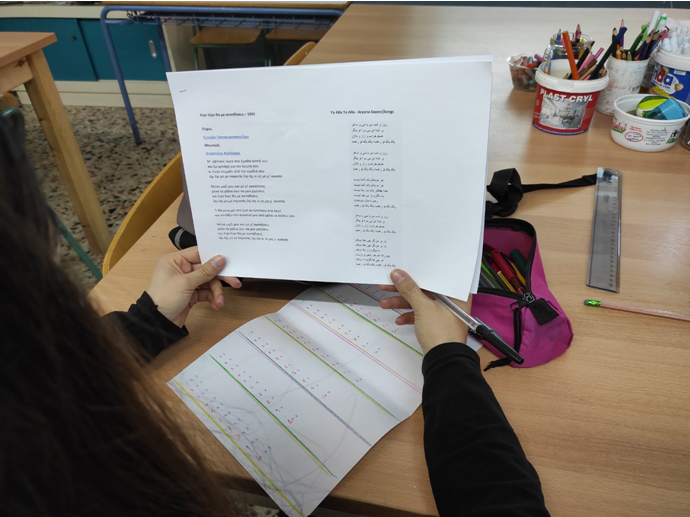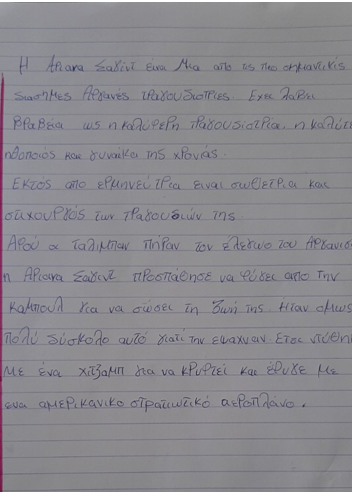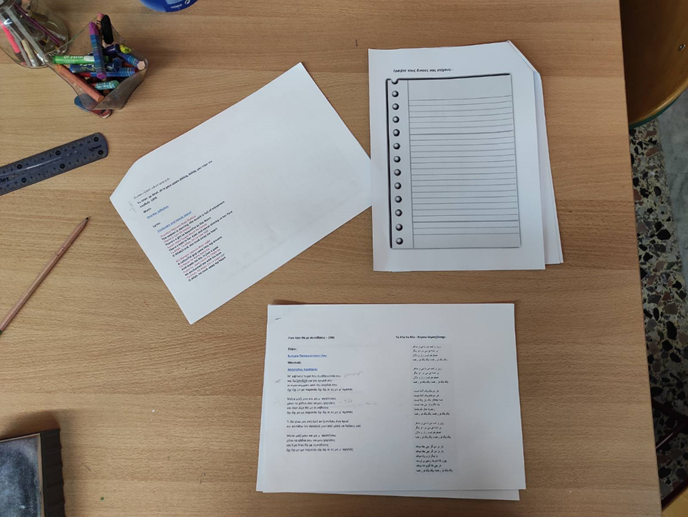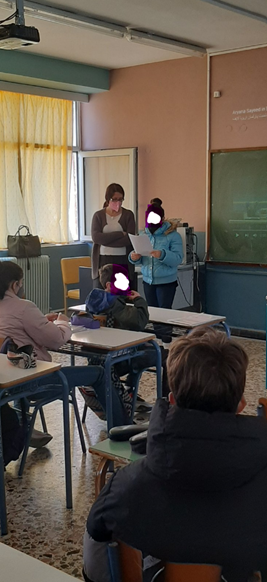Two meaningful activities were carried out in the third Grade of the 2nd Gymnasium of Kavala by the Music teacher and the Literature teacher, in collaboration with the teacher of the reception classes. Using music as a means of communication, the activities achieved a variety of general and specific educational objectives as well as targeted objectives for students with different cultural and linguistic backgrounds.
In the first activity in the music lesson, “Getting to know the Afghan singer Ariana Sayyid”, a student from Afghanistan read a short text in which she briefly introduced Ariana Sayyid, an Afghan singer-activist.
The whole class then watched a video of the European Parliament where the performer was invited to sing and speak about her country. The President of the European Parliament introduced Ariana Sayyid speaking English and then the performer sang in Dari while there were English subtitles underneath.
After the video was over there was a very interesting discussion involving all the students.
As the teachers reported: “The atmosphere in the classroom was very warm. The Greek students knew very little about Afghanistan and had never been in contact with the Dari before. The female refugee students were able to communicate very clearly what they wanted and thus they felt that they belonged to the class and their classmates were able to reach them by listening to their story.”
The second activity, “Study of a Greek, an Afghan and an Indian song with a common melody”, took place in the Literature lesson. The students listened to the song ‘A little bit you will get used to me’ from 1965 with lyrics by Eftychia Papagiannopoulou and music by Apostolos Kaldaras and then the Afghan song ‘YaAllaYaAlla’ from 2010.
A booklet with the lyrics of the two songs in Greek and in Dari was studied with the analysis of the Greek lyrics. Then the refugee children were asked to talk to the class about the meaning of the song ‘YaAllaYaAlla’.
Both songs are an adaptation of a 1959 Indian song, ‘YaAllah, yaAllah, dillegayaujaala’. The students also listened to this song without knowing beforehand which language it was in. So, they went into the process of figuring it out on their own by recalling sounds from contemporary Bollywood. At this point, they were given the English translation of the song and identified its meaning. In this way it was possible to contrast the three songs and find similarities and differences in meaning and rhythm. The aim was to realize that in all three countries love is a common theme in the songs and that there can be the same melody and rhythm while the musical instruments are different. They concluded by discussing the ways of having fun in Greece, Afghanistan and India, how teenagers today have fun and what music they listen to. At the end, the students were given as an activity to write their own lyrics as a group on the common melody.
Music facilitated communication and the atmosphere was very friendly. “The educational objectives were achieved while the engagement of the students was comprehensive utilising the languages that the students possessed either as mother tongues, second languages or foreign languages. The activity was successful because by taking advantage of the multicultural background of this particular classroom, the value of cultural diversity was highlighted.”
In conclusion, the teachers who implemented the activities aptly note: “The new reality that the Greek school has to face including refugee children can ultimately be a catalytic factor for the modernization and improvement of the Greek educational system. However, something must be done very carefully with specific means and modern educational methods and tools. One of these is the theory of linguistic awareness which places its main objective to highlight the enrichment of multiculturalism and multilingualism by activating all students.”



